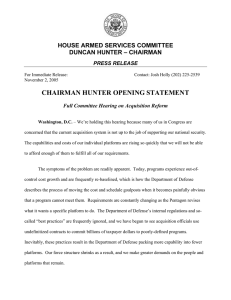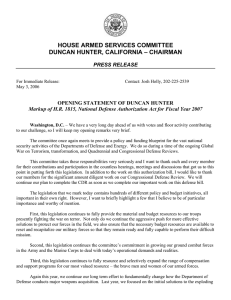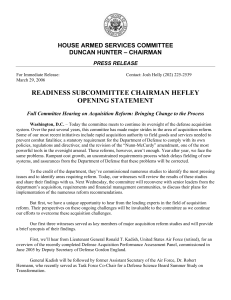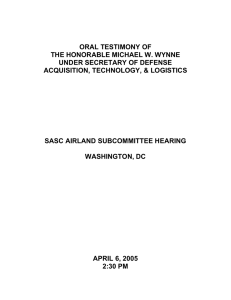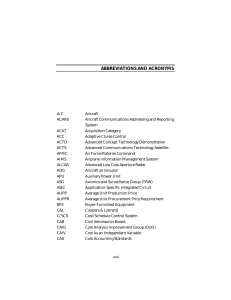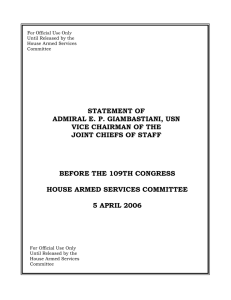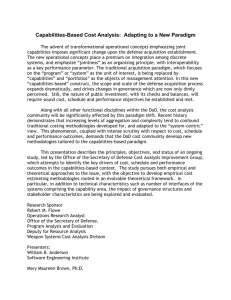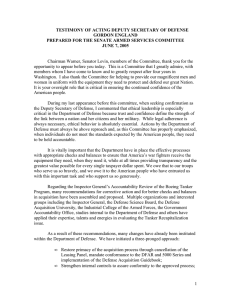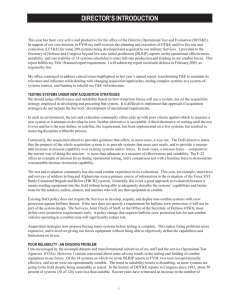CHAIRMAN HUNTER OPENING STATEMENT HOUSE ARMED SERVICES COMMITTEE DUNCAN HUNTER – CHAIRMAN
advertisement
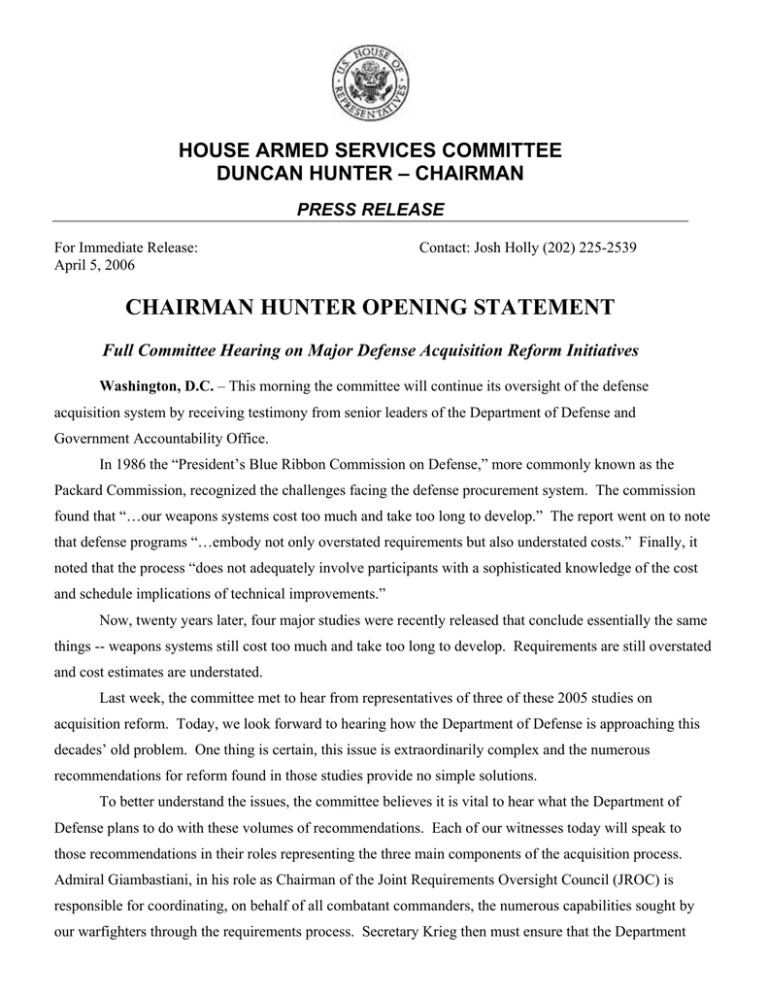
HOUSE ARMED SERVICES COMMITTEE DUNCAN HUNTER – CHAIRMAN PRESS RELEASE For Immediate Release: April 5, 2006 Contact: Josh Holly (202) 225-2539 CHAIRMAN HUNTER OPENING STATEMENT Full Committee Hearing on Major Defense Acquisition Reform Initiatives Washington, D.C. – This morning the committee will continue its oversight of the defense acquisition system by receiving testimony from senior leaders of the Department of Defense and Government Accountability Office. In 1986 the “President’s Blue Ribbon Commission on Defense,” more commonly known as the Packard Commission, recognized the challenges facing the defense procurement system. The commission found that “…our weapons systems cost too much and take too long to develop.” The report went on to note that defense programs “…embody not only overstated requirements but also understated costs.” Finally, it noted that the process “does not adequately involve participants with a sophisticated knowledge of the cost and schedule implications of technical improvements.” Now, twenty years later, four major studies were recently released that conclude essentially the same things -- weapons systems still cost too much and take too long to develop. Requirements are still overstated and cost estimates are understated. Last week, the committee met to hear from representatives of three of these 2005 studies on acquisition reform. Today, we look forward to hearing how the Department of Defense is approaching this decades’ old problem. One thing is certain, this issue is extraordinarily complex and the numerous recommendations for reform found in those studies provide no simple solutions. To better understand the issues, the committee believes it is vital to hear what the Department of Defense plans to do with these volumes of recommendations. Each of our witnesses today will speak to those recommendations in their roles representing the three main components of the acquisition process. Admiral Giambastiani, in his role as Chairman of the Joint Requirements Oversight Council (JROC) is responsible for coordinating, on behalf of all combatant commanders, the numerous capabilities sought by our warfighters through the requirements process. Secretary Krieg then must ensure that the Department undertakes the appropriate acquisition strategy to ensure that costs of system development are kept under control and that we are pursuing new systems that are technologically attainable and affordable. Finally, Mr. Patterson, here representing the OSD-Comptroller, has the responsibility of maneuvering through the long and complex Planning, Programming, Budgeting and Execution Process (PPB&E). Today’s hearing will be an in-depth look into the entire Acquisition process from the Department’s key stakeholders and the GAO. The committee is fortunate to have assembled these four witnesses to get a comprehensive view of the way ahead for defense acquisition reform. ### http://armedservices.house.gov/
